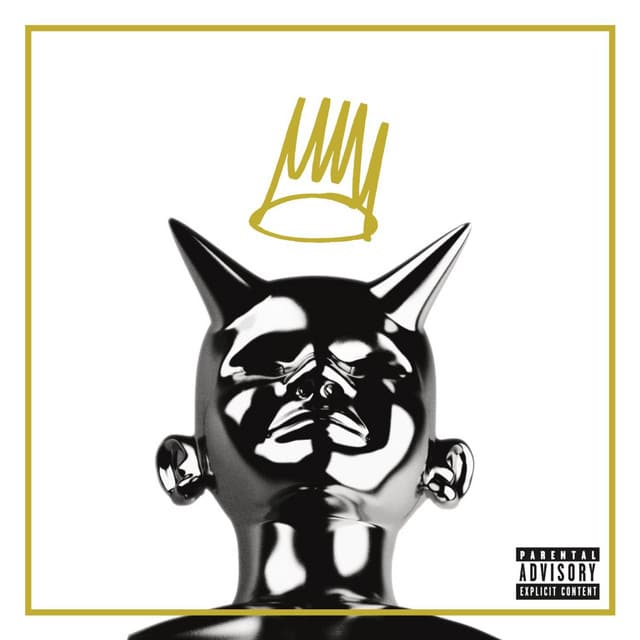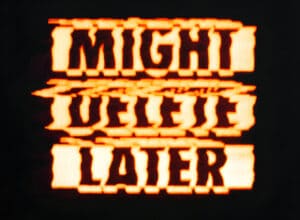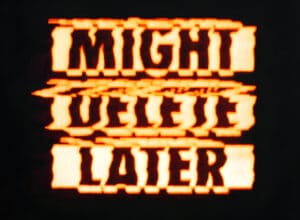Released: 2013 • Features: Kendrick Lamar
“Forbidden Fruit” by J. Cole featuring Kendrick Lamar is a lyrical journey that weaves a tapestry of biblical references, commentary on personal growth, and reflections on temporary nature of love, life, and fame in the hip-hop game. The song deploys a fresh perspective to the age-old story of “Adam and Eve,” whilst subtly seeding in messages about striving for lasting impact in a transient world.
J. Cole kicks off the verse by painting the picture of a relationship set in a metaphorical “garden”, an obvious nod to the Eden from the Bible. The sipping of “juice”, from the “forbidden fruit” a.k.a. the apple, which symbolizes the act of yielding to temptation, a central theme in the song. But in Cole’s garden, the TEC-9s (TECs) replacing serpents and the sin isn’t just the original biblical transgression, it’s life in the streets, struggles with sin and desire for fame.
Cole’s reference to himself as “the king”, holding a ‘black book’ thicker than the Old Testament, is his way of puffing out his chest boasting about his lyrical prowess. There’s wordplay involved when he talks about a woman giving “brains” to the minister, with ‘brains’ being a slang term for oral sex. By the end of verse one, Cole presents himself as immortal through his art – “my words gon’ live forever.”
The hook clarifies the transitory nature of things in life: “Bitches come and go, money come and go, love come and go.” And the rapper explicitly states that none of these lasts, a point amplified in his own life through the grind and quest for success.
By the second verse, J. Cole gets more personal, weaving words around his journey from poverty to fame, reminiscing over the past before money and fame came calling. At the same time, he criticizes the industry’s norms—how many records he has to sell to get a magazine cover, but he confidently claims that he is the best, the greatest, and the future of the game.
The outro is essentially a whirlwind of bravado, pop culture references, and a warm shoutout to the legendary group A Tribe Called Quest (Phife, Q-Tip, Ali, and Jarobi). Cole simultaneously upholds his ‘king’ status and his starting point with only a “dollar and a dream.”
The song’s outro breaks the fourth wall and portrays a ‘scene’ with Cole and an implied jeweler—another symbolism emphasizing the transitory allure of fame and wealth while Cole decides to ‘bring back’ platinum, likely a nod to the practice of moving beyond gold in the music certification hierarchy.
In a nutshell, “Forbidden Fruit” is J. Cole exploring the fruits of fame, money, and love, yet fully aware that just like the original biblical tale, these can lead to one’s downfall or redemption. Throughout the song, he showcases a firm grip on his journey and the transient nature of the world around him.








